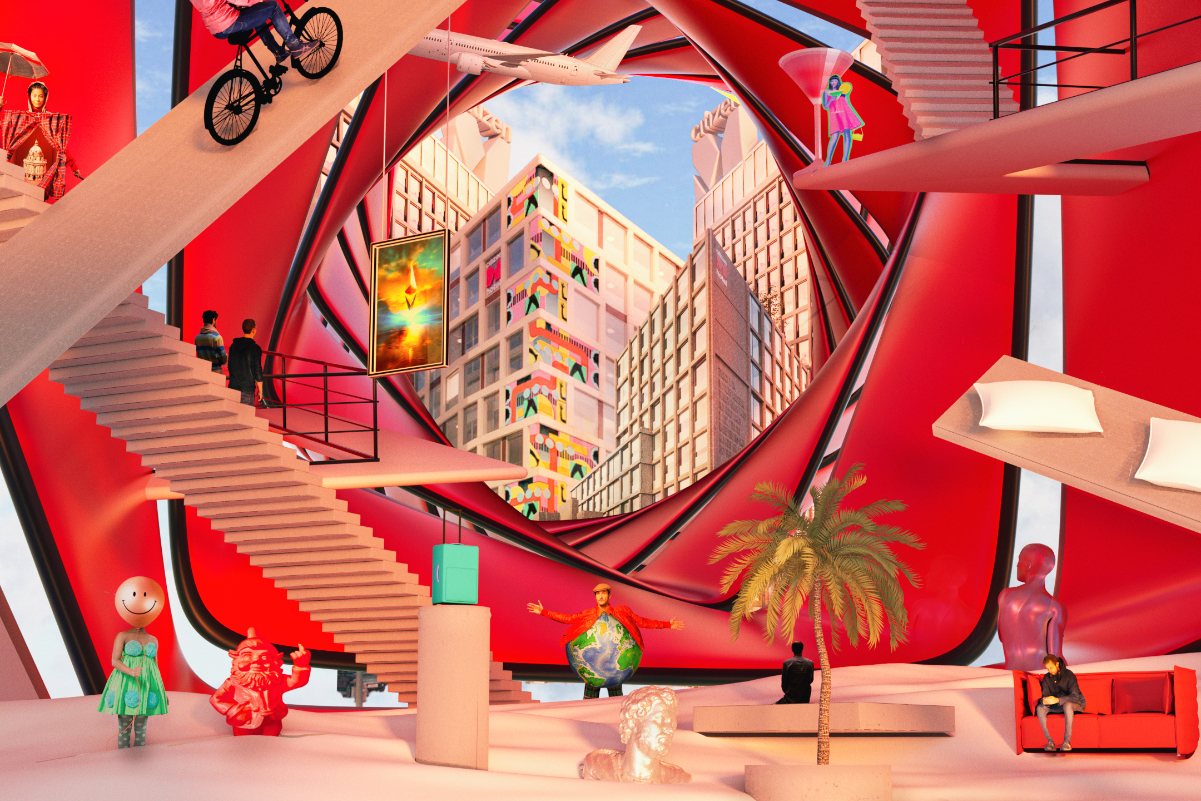Skift Take
What's getting called the metaverse today is a joke. But marketers are right to run tests. The key thing to learn is how people will express their identities and status via avatars in virtual games. Future branding depends on that knowledge.
CitizenM said on Wednesday it’s planting a flag in the metaverse, an online space where people simulate activities.
The Amsterdam-based hotel group bought a virtual space in a game called the Sandbox. The company aims to connect with players there, explore potential marketing opportunities, and possibly raise money to build a real-world property.
“We don’t know if it’s going to be successful or not because the metaverse is just getting started,” said Robin Chadha, chief marketing officer. “But we want to make sure that — if our customers are exploring NFTs and the metaverse and everything that goes along with it — we’re a part of it, too.”
A metaverse is essentially a place where people act in an online world by using digital avatars — often with the help of virtual reality gear.
But it has many definitions. Meta’s Mark Zuckerberg sees it as something of an always-logged-in virtual world, a point that Jan Starcke, Meta’s travel industry lead in Europe, is evangelizing. Travel tech firm Amadeus sees it as an immersive experience similar to video game services like Microsoft Xbox. The tech firm Niantic expects it to feature a big role for augmented reality.
Yet skeptics are — surprise! — skeptical. Iceland Tourism has satirized the trendy concept. And one critic has called the metaverse “everything you hate about the internet, strapped to your head.”
CitizenM Has an Artsy Take on the Metaverse
The hotel company purchased “one pixel of land” in the Sandbox, which is run by Animoca Brands and which has a look and feel similar to the video game Minecraft.
The hotel chain didn’t disclose how much it is spending on the effort. Land in the Sandbox can cost hundreds of thousands of dollars, according to media reports.
CitizenM plans to create a place where avatars can “work, sleep, and play.”
“For now we are just curious how many people will come and how they will behave,” Chadha said. “As we develop the hotel, we will create interactive moments, and possibly even use this as a way to test new ‘real world’ ideas.”
CitizenM hopes to eventually sell some art, essentially certified with non-fungible tokens, or NFTs, for a number of cryptocurrency tokens. If the sales are popular, commissions could be used to build a virtual hotel.
“We will work with digital artists to create and exhibit digital artwork that is connected to an NFT, ensuring the artist gets a fee for every time the piece gets resold,” Chadha said.
The hotel group aims to sell about 2,000 NFTs, which will come with a pledge for discounts and perks such as free drinks redeemable by the purchaser at real-world citizenM properties.
“We’ve always been a disruptor in the hospitality industry,” Chadha said. “So this is a space we want to explore.”
The company will also consider participating in other platforms, such as Decentraland.
For more on the CitizenM group strategy, watch this video of CEO Klaas van Lookeren Campagne being interviewed at Skift Forum Europe last month.
Have a confidential tip for Skift? Get in touch
Tags: citizenm, future of lodging, marketing, metaverse, virtual reality
Photo credit: A visualization of what hotel group CitizenM may present as its space in the Sandbox, an online world that represents one test version of the metaverse. CitizenM plans to build a hotel in the metaverse via the Sandbox, an online space where people simulate activities. Source: CitizenM.

